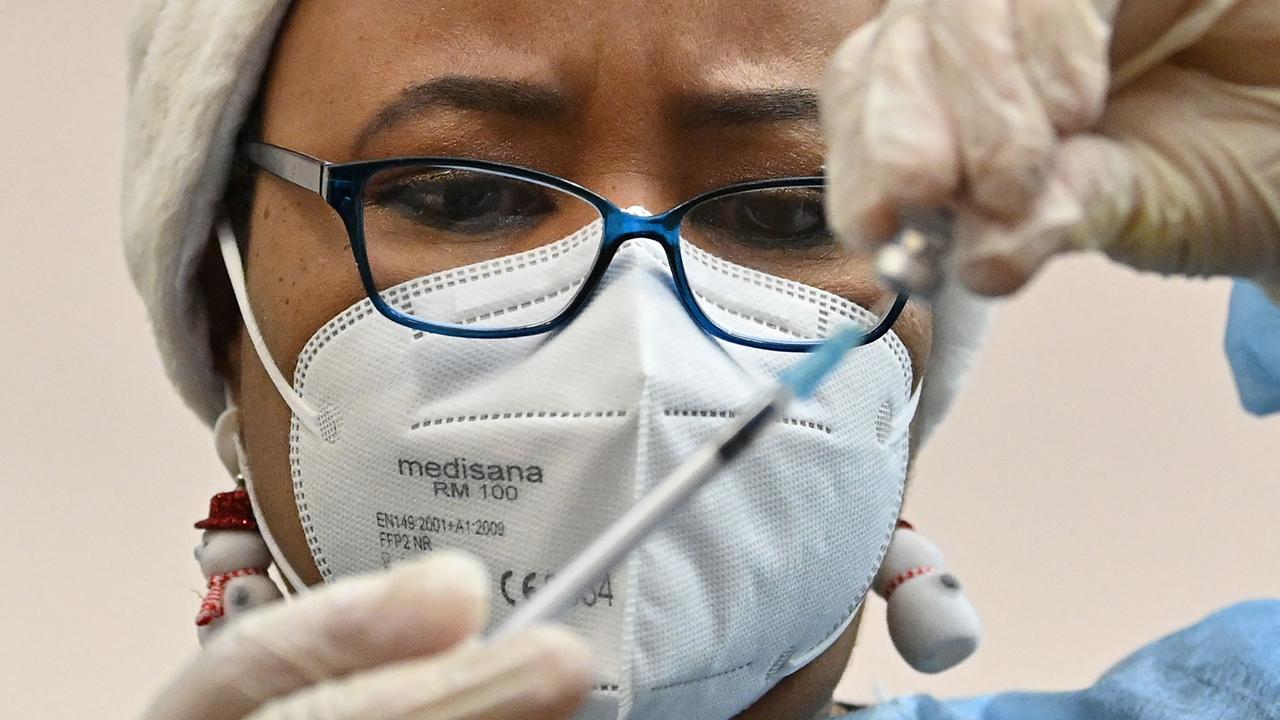UK experts reveal four ways the Covid pandemic could play out
When will life go back to normal? Experts have released four possible pandemic scenarios that could play out over the next few years.
Experts in the United Kingdom have provided an insight into how the pandemic could play out in the next few years, releasing four possible scenarios.
The UK’s Scientific Advisory Group for Emergencies (SAGE) provides scientific advice to the government to guide its decisions, and last week it released a document with several pandemic scenarios it believes are possible.
They include some “optimistic” and best-case scenarios as well as possible worst-case scenarios.
However, the group was careful to state the scenarios are not the only plausible paths the Covid pandemic could take.
“An outcome that lies outside the range covered by the four scenarios – better than the reasonable best-case scenario or worse than the reasonable worst-case scenario – cannot be ruled out,” the SAGE document states.
All of the scenarios assume Covid-19 will continue to circulate for the foreseeable future and that new variants emerge.
“In each scenario, it is assumed that a relatively stable, repeating pattern is reached over time (2-10 years) but it is likely that the transition to this will be highly dynamic and unpredictable,” the document states.
Stream the latest news on COVID-19 with Flash. Stream more than 20 global & local news sources. New to Flash? Try 14 days free now>

However, SAGE said it may not be possible to predict with any confidence what happens long-term, even based on outcomes in the next 12 to 18 months.
The main differences in the scenarios are related to the transmissibility and severity of new variants, as well as how often they appear and when.
SAGE notes global vaccination rates will be key, and surveillance, vaccines, therapeutics and testing will also have large impacts on outcomes.
“Waves will be worse if detected late, vaccine effectiveness is low, or if stocks of effective vaccines are low or cannot be deployed quickly,” it said.
Overall, the speed at which testing, vaccination and antiviral provision can be ramped up in an emergency will significantly affect outcomes.
Protective behaviours such as mask wearing and social distancing are also expected to continue to play an important role in reducing transmission but cannot be reliably predicted for future waves.
Scenario 1: Reasonable best case
Covid is not just going to disappear and the most likely best-case scenario UK experts believe the world can expect is a small spike of Covid cases during the European autumn/winter at the end of this year with low levels of severe disease.
In this scenario, further variants would emerge but without major changes to how easily the virus spreads. The severity of the disease would not be worse than experienced with Delta, and protection offered by current vaccines and previous infection would largely be the same.
In the future, there could be minor outbreaks during colder weather or in certain regions due to waning immunity or new variants.
Existing vaccines would be used annually to boost the vulnerable only.
The use of antivirals would help reduce deaths and severe disease.

Scenario 2: Central optimistic
A slightly worse scenario would see a wave of infections in the European autumn/winter similar to the size and severity of the current Omicron wave.
In the future, waves of infection would be driven by waning immunity or the emergence of new variants.
In general there would be a pattern of annual infections associated with colder weather with good and bad years. In the bad years, the spread and severity of the virus would be similar to that seen with the Delta variant.
Severe illness and death would be mostly limited to those who are vulnerable, elderly or those who do not have prior immunity.
Vaccines would be regularly updated and given annually to the vulnerable and to others in bad years.
Some countries may put rules in place in bad years, such as face masks.
Resistance to antivirals begins to appear and this limits how much they can be used until combination therapies are available.
Scenario 3: Central pessimistic
In this scenario, a new variant of concern emerges in the next 12 to 18 months and causes a large wave of infections, potentially at short notice and outside of autumn/winter.
However, severe disease and deaths remain concentrated among certain groups (like the unvaccinated, the vulnerable and elderly), and levels remain lower than what was experienced before vaccines were available.
This scenario sees the unpredictable emergence of variants for many years, sometimes more than once a year and/or with severity similar to Delta in bad years. Transmissibility and immune evasion would be similar to Omicron.
Existing immunity and updated vaccines continue to provide good protection against most severe outcomes.
The good news is that there wouldn’t be repeated waves of infection that cause widespread disruption, especially among some groups such as children at school.
But widespread yearly jabs with updated vaccines would be required.
Resistance to antivirals would be widespread. The virus may not reduce rates of influenza, with the overlapping outbreaks placing pressure on healthcare.
Authorities would encourage limited voluntary measures during outbreaks, with some countries introducing significant rules such as mandatory face masks in bad years.
Scenario 4: Reasonable worst-case
In this worst-case scenario, large waves of infections with higher levels of severe disease would continue to impact the wider public over the next 12 to 18 months, although the most severe outcomes would largely be limited to those with no prior immunity to infection.
In the longer term, variants could continue to emerge, with some showing the ability to spread despite vaccines and even among those who have had prior infections.
Unpredictable changes to the virus could see severe deaths and deaths increase in groups other than the elderly, the vulnerable and unvaccinated.
There could also be increased long-term impacts (such as ‘long Covid’) among those who get infected.
Annual vaccination with updated vaccines is required, and there would be widespread resistance to antivirals.
Significant mandatory measures such as the use of face masks could be required, especially when new variants emerge quicker than vaccine updates and/or testing is not good enough.






